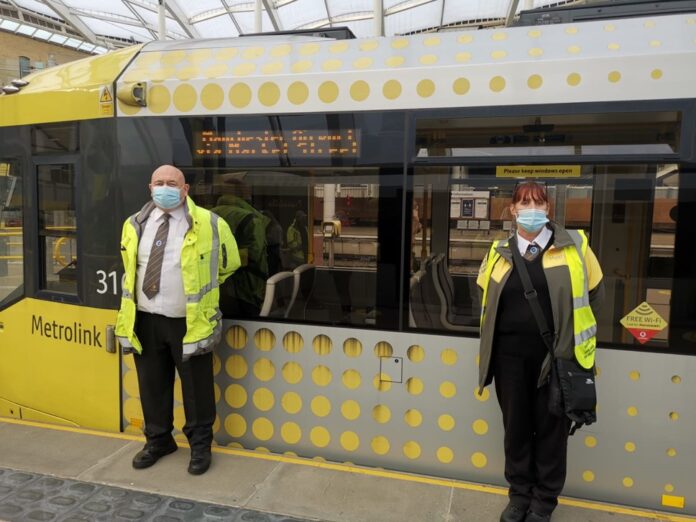An NHS trust in Greater Manchester has partnered with Metrolink to train staff in mental health awareness. The training course improves the skills needed to support someone in distress, and helps Metrolink key workers recognise and respond effectively to signs of a mental health crisis.
The course, designed and delivered by Greater Manchester Mental Health NHS Foundation Trust (GMMH), helps people learn evidence-based techniques to respond to people in distress and how to signpost them to the right support services available.
More than 120 of Metrolink’s frontline customer service staff received this life-saving training from GMMH’s Recovery Academy, throughout September and October this year, so that they can be better at supporting the public in Greater Manchester experiencing poor mental health.
Customer Service Representatives across the company’s depots at Queens Road, and Trafford have all taken part in the two-day (12 hour) training programme, which will enable them to identify symptoms of poor mental health, and be aware of the necessary steps to take to support the public.
The Recovery Academy is hoping to work with other organisations across Greater Manchester to give people advice, based on what has been shown to work, so that more people in public-facing roles can be better at supporting people experiencing poor mental health or a crisis.
The training is the latest in a number of initiatives adopted by the transport company to open up a positive conversation about wellbeing and provide staff with the skills to help people most in need.
Claire Watson, Recovery Academy Lead for Greater Manchester Mental Health NHS Foundation Trust, said: “Mental health difficulties do not discriminate and can affect anyone at any given time. This highlights the urgent need to equip organisations, their staff and volunteers, with the foundation skills to support people in distress and make mental health support ‘everybody’s business’.
“Every interaction is a potential intervention to help someone and potentially save their life. The more people with the right attitude, knowledge and skills, the more chance we have of ending the stigma associated with mental health, so that people will reach out to their peers, colleagues and services when they need to.
“We are so pleased to provide Metrolink with this training and work with them to empower staff working on the frontline to either take the first steps to seek help, or identify the signs that indicate a colleague, friend, relative or member of the public may need assistance, and how they can best support.”







